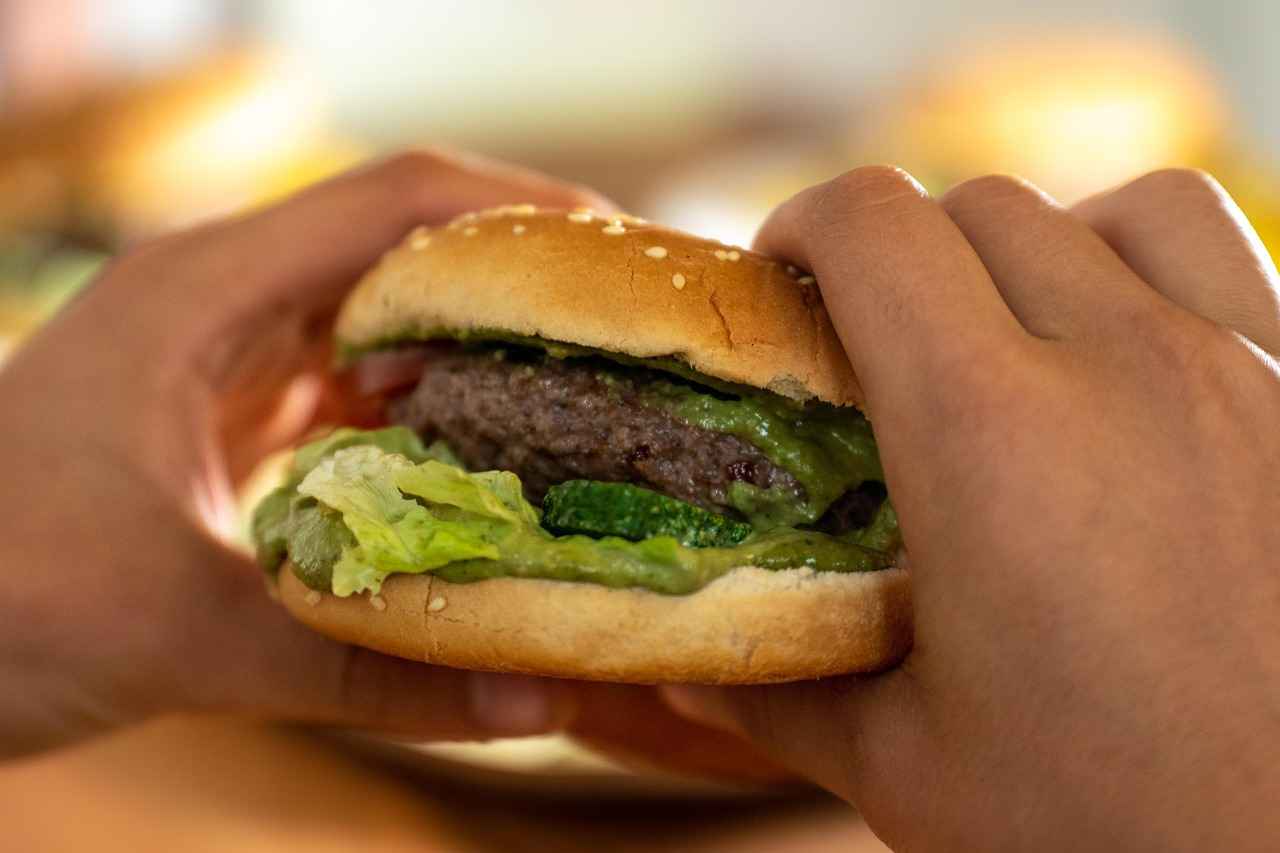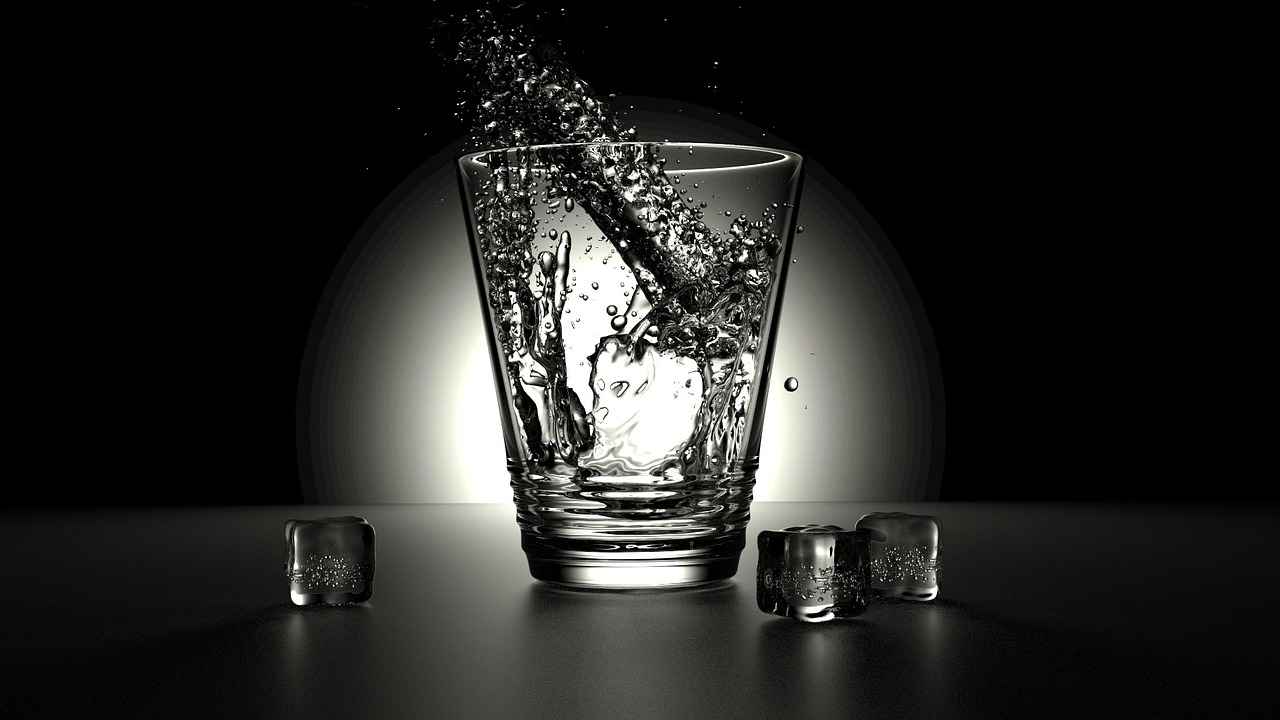This article delves into the intricate relationship between water consumption during fasting and its significant impact on ketosis, a metabolic state that many individuals aim to achieve for weight loss and various health benefits.
Understanding Ketosis and Its Benefits
Ketosis is a metabolic process where the body, deprived of carbohydrates, shifts its energy source from glucose to fat. This shift leads to the production of ketones, which serve as an alternative fuel source. Benefits of ketosis include enhanced fat burning, improved mental clarity, and reduced hunger, making it a popular choice for those pursuing weight loss and improved metabolic health.
The Role of Fasting in Achieving Ketosis
Fasting plays a crucial role in accelerating the onset of ketosis. By abstaining from food, glycogen stores in the liver are depleted, forcing the body to turn to fat for energy. This transition can occur within 24 to 48 hours of fasting, depending on individual metabolism and activity levels.
Hydration’s Importance During Fasting
During fasting, maintaining proper hydration is essential. Water supports various metabolic processes, aids in detoxification, and helps the body adapt to the changes that come with entering ketosis. Dehydration can lead to fatigue, headaches, and decreased cognitive function, which can hinder the benefits of fasting.
Does Water Consumption Disrupt Ketosis?
One common question is whether drinking water during fasting affects the state of ketosis. The good news is that water is calorie-free and does not disrupt fasting. In fact, staying hydrated can enhance the fasting experience by improving energy levels and mental clarity.
The Impact of Electrolytes on Ketosis
Electrolytes, such as sodium, potassium, and magnesium, are vital for maintaining bodily functions, especially during fasting. As the body transitions into ketosis, electrolyte levels can become imbalanced due to changes in fluid balance. Consuming electrolyte-infused water can help replenish these essential minerals, supporting overall health during this metabolic shift.
How Electrolytes Support Ketosis
- Sodium: Helps maintain blood pressure and fluid balance.
- Potassium: Supports muscle function and nerve transmission.
- Magnesium: Aids in energy production and muscle relaxation.
Signs of Electrolyte Imbalance
Those fasting may experience symptoms such as fatigue, muscle cramps, and headaches, which could indicate an electrolyte imbalance. It is crucial to monitor these signs and ensure adequate hydration and electrolyte intake during fasting periods.
Water’s Role in Appetite Regulation
Drinking water can also play a significant role in appetite regulation. It promotes a feeling of fullness, which can be particularly beneficial during fasting periods aimed at achieving ketosis. Staying hydrated may help reduce cravings and support adherence to fasting protocols.
Different Types of Water During Fasting
There are various types of water that can be consumed during fasting, including:
- Plain Water: Essential for basic hydration.
- Mineral Water: Provides essential minerals that support hydration.
- Electrolyte-Infused Water: Replenishes lost minerals and supports energy levels.
Benefits of Mineral Water
Mineral water can be particularly beneficial as it contains essential minerals, which may enhance hydration and support the body’s ability to maintain ketosis during fasting.
Electrolyte Water and Ketosis
Electrolyte water is an excellent choice for those seeking to sustain energy levels while in ketosis. It helps replenish lost minerals and supports overall bodily functions during fasting.
Common Myths About Water and Fasting
There are several misconceptions surrounding water consumption during fasting. One common myth is that drinking water breaks the fast. However, understanding the role of hydration can help individuals make informed choices about their fasting practices.
Practical Tips for Hydration During Fasting
To optimize hydration while fasting, consider the following strategies:
- Drink water regularly throughout the day.
- Incorporate electrolytes into your hydration routine.
- Pay attention to your body’s signals for thirst and energy levels.
By understanding the relationship between water consumption and ketosis, individuals can enhance their fasting experience and achieve their health and weight loss goals more effectively.

Understanding Ketosis and Its Benefits
Ketosis is a metabolic state that has gained popularity for its potential benefits in weight loss and overall health. It is characterized by the presence of ketones in the blood, which indicates that the body has shifted its primary energy source from glucose to fat. This transition occurs when carbohydrate intake is significantly reduced, prompting the liver to convert fatty acids into ketones, which can then be used for energy.
One of the most notable benefits of ketosis is its ability to aid in weight loss. When the body enters this state, it becomes more efficient at burning fat, which can lead to a reduction in body weight and fat percentage. Furthermore, many individuals report a decrease in appetite and cravings, making it easier to adhere to a low-carbohydrate diet.
In addition to weight loss, ketosis has been linked to various health benefits. Research suggests that it may help improve blood sugar control, making it a potential dietary approach for those with type 2 diabetes. By stabilizing blood sugar levels, individuals may experience fewer spikes and crashes in energy, leading to improved overall well-being.
Another benefit of ketosis is its potential to enhance mental clarity and focus. Ketones are known to provide a more stable energy source for the brain compared to glucose, which can lead to improved cognitive function and decreased mental fatigue. Many people who follow a ketogenic diet report increased productivity and better concentration.
Moreover, ketosis may have neuroprotective effects, potentially benefiting conditions such as epilepsy and Alzheimer’s disease. Some studies indicate that the ketones produced during this metabolic state can provide an alternative energy source for neurons, which may help protect against neurodegeneration.
To achieve and maintain ketosis, it is essential to follow a low-carbohydrate, high-fat diet (LCHF). This typically involves reducing carbohydrate intake to around 20-50 grams per day while increasing the consumption of healthy fats such as avocados, nuts, seeds, and olive oil. It is also important to monitor protein intake, as excessive protein can be converted to glucose, hindering the process of ketosis.
In summary, understanding ketosis and its benefits can empower individuals to make informed dietary choices. By embracing a ketogenic lifestyle, many have experienced significant improvements in weight management, metabolic health, and cognitive function. As with any dietary change, it is advisable to consult with a healthcare professional before embarking on a ketogenic diet, especially for those with underlying health conditions.

The Role of Fasting in Achieving Ketosis
Fasting has gained significant attention in recent years, particularly for its potential to facilitate the metabolic state known as ketosis. This state is characterized by the production of ketones, which serve as an alternative energy source for the body when glucose levels are low. One of the primary mechanisms through which fasting promotes ketosis is by depleting glycogen stores, the body’s readily available source of energy derived from carbohydrates.
When you engage in fasting, your body initially relies on glycogen for energy. However, as these stores become depleted, typically within 24 to 48 hours, your body begins to transition into ketosis. This shift is significant because it signals a metabolic change where fat becomes the primary fuel source. During this process, fatty acids are converted into ketones in the liver, providing an efficient energy source that many find to be beneficial for both weight loss and cognitive function.
Moreover, the benefits of fasting extend beyond merely entering ketosis. Many individuals report enhanced mental clarity and reduced hunger pangs once they adapt to using ketones for energy. This adaptation period can vary from person to person, but typically, those who practice intermittent fasting or prolonged fasting find their bodies become more efficient at burning fat over time.
Another key aspect of fasting is its potential to promote autophagy, a cellular repair process that removes damaged cells and regenerates new ones. This process is thought to be enhanced during fasting periods, contributing to overall health and longevity. As the body shifts to ketosis, it not only burns fat but also initiates vital repair mechanisms that can improve metabolic health.
However, it is essential to approach fasting with caution and awareness of individual health conditions. While fasting can accelerate the onset of ketosis, it may not be suitable for everyone. Individuals with certain medical conditions, such as diabetes or eating disorders, should consult healthcare professionals before beginning any fasting regimen.
In addition to the metabolic benefits, hydration plays a crucial role during fasting. Many people wonder if drinking water affects ketosis. Fortunately, water is calorie-free and does not interfere with the fasting state. In fact, staying well-hydrated can support the body’s transition into ketosis by aiding in detoxification and maintaining metabolic functions.
Furthermore, incorporating electrolytes into your hydration strategy can be beneficial. As the body adapts to ketosis, it may excrete more electrolytes, leading to potential imbalances. Consuming electrolyte-infused water can help mitigate symptoms such as fatigue, muscle cramps, and headaches, which are often associated with electrolyte depletion during fasting.
To optimize the benefits of fasting and ensure a smooth transition into ketosis, consider the following practical tips:
- Stay Hydrated: Aim to drink plenty of water throughout the fasting period to support metabolic processes.
- Incorporate Electrolytes: Use electrolyte supplements or drink electrolyte-infused water to maintain balance.
- Listen to Your Body: Pay attention to hunger cues and energy levels, adjusting your fasting duration as needed.
- Gradual Transition: If new to fasting, consider starting with shorter fasting periods to allow your body to adapt.
In summary, fasting plays a pivotal role in achieving ketosis by depleting glycogen stores and prompting the body to utilize fat as its primary energy source. This metabolic shift not only aids in weight loss but also enhances overall health through processes like autophagy. By maintaining proper hydration and electrolyte balance, individuals can further support their journey into ketosis, making fasting a potentially powerful tool for those seeking to improve their metabolic health.

Hydration’s Importance During Fasting
Hydration is a critical component of health, particularly during fasting periods. When the body is deprived of food, maintaining adequate fluid levels becomes essential for several reasons. Water serves as a fundamental element in various metabolic processes, detoxification, and overall well-being.
During fasting, the body undergoes significant changes as it transitions from using glucose to fat for energy, a process known as ketosis. This metabolic state is sought after for its potential benefits in weight loss and enhanced mental clarity. However, the shift to ketosis can place additional demands on the body, making hydration even more crucial.
One of the primary reasons staying hydrated is vital during fasting is that it supports metabolic processes. Water is involved in digestion, nutrient absorption, and the elimination of waste products. When fasting, the body relies on water to facilitate these processes, ensuring that it can efficiently utilize stored fat for energy.
Moreover, hydration plays a significant role in detoxification. Fasting can lead to the release of toxins stored in fat cells as the body begins to break down fat for energy. Drinking sufficient water helps flush these toxins out, reducing the risk of potential side effects such as headaches and fatigue.
| Benefits of Hydration During Fasting | Description |
|---|---|
| Supports Metabolism | Water is essential for metabolic reactions, ensuring efficient energy production. |
| Aids Detoxification | Helps remove toxins released during fat breakdown. |
| Maintains Energy Levels | Proper hydration can prevent fatigue and support physical performance. |
Additionally, hydration helps maintain overall health while the body adapts to ketosis. When fasting, individuals may experience symptoms such as dizziness or fatigue due to dehydration. Drinking water regularly can mitigate these symptoms, making the fasting experience more manageable.
It’s also important to note that the type of water consumed can impact hydration levels. For instance, electrolyte-infused water can help replenish essential minerals lost during fasting, supporting bodily functions and enhancing the transition into ketosis. Incorporating sources of electrolytes, such as sodium, potassium, and magnesium, can further optimize hydration and overall health during fasting.
In conclusion, staying hydrated is not just a matter of quenching thirst; it is a fundamental aspect of fasting that supports metabolic processes, aids in detoxification, and helps maintain overall health. By prioritizing hydration, individuals can enhance their fasting experience and better achieve the benefits associated with ketosis.

Does Water Consumption Disrupt Ketosis?
As more people turn to fasting as a method for weight loss and improved health, a common question arises: Does drinking water during fasting affect ketosis? This inquiry is particularly relevant for those pursuing a ketogenic lifestyle, where the goal is to enter a state of ketosis. Fortunately, research indicates that water, being calorie-free, does not interfere with the fasting state.
Ketosis occurs when the body shifts from using carbohydrates as its primary energy source to utilizing fats, resulting in the production of ketones. This metabolic state can be achieved through various methods, including fasting, which accelerates the depletion of glycogen stores in the liver. As glycogen levels drop, the body begins to burn fat for energy, leading to ketosis.
During fasting, maintaining proper hydration is essential. Water plays a crucial role in supporting metabolic processes, aiding in detoxification, and ensuring overall health as the body adapts to utilizing fat for energy. The consumption of water does not provide calories, making it an ideal beverage during fasting periods. In fact, staying hydrated can help mitigate some of the common side effects associated with fasting, such as fatigue and headaches.
However, it is important to note that while plain water is beneficial, electrolyte balance also plays a significant role in supporting ketosis. Electrolytes, including sodium, potassium, and magnesium, are vital for various bodily functions, including nerve transmission and muscle contraction. During fasting, the body may lose electrolytes, which can lead to symptoms of imbalance.
To address this, many individuals opt for electrolyte-infused water to help replenish lost minerals. This can be particularly helpful for those who experience fatigue or muscle cramps, which are common signs of electrolyte deficiency. Incorporating electrolyte-rich beverages can support energy levels and enhance the overall fasting experience.
- Hydration and Appetite Regulation: Drinking water can also aid in appetite regulation during fasting. It helps promote a feeling of fullness, which can be beneficial for those trying to limit their caloric intake.
- Types of Water to Consider: Different types of water, such as mineral and electrolyte-infused water, offer unique benefits. Mineral water provides essential minerals that support hydration, while electrolyte water replenishes lost nutrients.
Despite the numerous benefits of water during fasting, there are still misconceptions surrounding its consumption. Some believe that any intake of liquid might disrupt the fasting process. However, this is not the case with water, which remains a critical component of a successful fasting regimen.
In summary, drinking water during fasting does not disrupt ketosis; rather, it supports the body through the fasting process. Ensuring adequate hydration and maintaining electrolyte balance are key factors for those aiming for ketosis. By understanding the importance of water and electrolytes, individuals can optimize their fasting experience and achieve their health goals more effectively.

The Impact of Electrolytes on Ketosis
When embarking on a ketogenic diet or engaging in fasting, it is essential to understand the role of electrolytes in maintaining health and supporting the body’s transition into ketosis. Electrolytes are minerals that carry an electric charge and are crucial for various bodily functions, including nerve function, muscle contraction, and maintaining fluid balance. Key electrolytes include sodium, potassium, magnesium, and calcium.
How Fasting Affects Electrolyte Levels
During fasting, the body undergoes significant metabolic changes. As glycogen stores are depleted, the body begins to utilize fat as its primary energy source, leading to the production of ketones. This shift can impact electrolyte levels, as the body may excrete more sodium and potassium, potentially leading to an imbalance. Therefore, understanding how to replenish these vital minerals is crucial for anyone looking to achieve or maintain ketosis.
Signs of Electrolyte Imbalance
- Fatigue: A common symptom that can hinder your energy levels.
- Muscle Cramps: Often a sign of low potassium or magnesium levels.
- Headaches: Can arise from dehydration and electrolyte deficiency.
- Dizziness: May indicate low sodium levels, especially upon standing.
The Importance of Hydration with Electrolytes
Staying hydrated is vital during fasting, not just for general health but also for supporting the body’s transition into ketosis. Drinking electrolyte-infused water can help replenish lost minerals, particularly when fasting for extended periods. This type of water can mitigate the symptoms associated with electrolyte imbalance and support overall well-being.
Electrolyte Sources and Recommendations
To maintain optimal electrolyte levels during fasting, consider the following sources:
- Electrolyte Supplements: Available in various forms, including powders and tablets, these can be easily added to water.
- Bone Broth: A natural source of electrolytes, rich in sodium and potassium.
- Leafy Greens: Foods like spinach and kale are excellent sources of magnesium and potassium.
- Avocados: High in potassium, they can be beneficial when breaking a fast.
Electrolytes and Performance During Ketosis
Maintaining proper electrolyte levels is not just about avoiding discomfort; it also enhances performance and energy levels during ketosis. Many individuals report increased clarity and improved physical performance when adequately hydrated with electrolytes. This can be particularly beneficial for athletes or those engaging in high-intensity workouts while in a ketogenic state.
Practical Tips for Electrolyte Management
- Monitor Your Intake: Keep track of your electrolyte consumption, especially if you experience symptoms of imbalance.
- Stay Hydrated: Ensure you are drinking enough fluids, particularly water infused with electrolytes.
- Adjust as Needed: If you are feeling unwell, consider increasing your electrolyte intake until you feel balanced.
By understanding the impact of electrolytes on ketosis and prioritizing hydration, individuals can enhance their fasting experience and support their journey towards achieving a ketogenic state. Remember, proper management of electrolytes can significantly influence not only your health but also your overall success in reaching your wellness goals.
How Electrolytes Support Ketosis
When embarking on a journey toward ketosis, understanding the role of electrolytes is essential. These minerals, including sodium, potassium, and magnesium, play a pivotal role in maintaining various bodily functions, especially during fasting. As the body transitions from burning glucose to utilizing fat for energy, the demand for these electrolytes increases significantly.
During fasting, the body experiences a reduction in glycogen stores, leading to a shift in metabolic processes. This shift not only affects energy levels but also influences the balance of electrolytes in the body. Electrolytes are crucial for fluid balance, helping to regulate hydration levels, which is vital when the body is adapting to a state of ketosis.
Moreover, electrolytes are essential for nerve function. They facilitate the transmission of electrical signals in the nervous system, which is especially important for those who are fasting. Insufficient electrolyte levels can lead to symptoms such as fatigue, muscle cramps, and headaches, often referred to as the “keto flu.” This underscores the importance of maintaining proper electrolyte levels during the transition to ketosis.
One effective way to ensure adequate electrolyte intake is through electrolyte-infused water. This type of water not only hydrates the body but also replenishes essential minerals that may be lost during fasting. Incorporating such beverages can help mitigate the risk of electrolyte imbalance, thus supporting overall health and energy levels.
In addition to electrolyte-infused water, consuming foods rich in these minerals can also be beneficial. Foods such as avocados, leafy greens, and nuts are excellent sources of potassium and magnesium, while salt can help maintain sodium levels. However, it is crucial to monitor intake to avoid excessive consumption, which can lead to other health issues.
Furthermore, understanding the signs of electrolyte imbalance is vital. If you experience symptoms like dizziness, irregular heartbeat, or persistent muscle cramps, it may indicate that your body is lacking essential electrolytes. In such cases, adjusting your hydration strategy and incorporating electrolyte-rich foods or supplements can be beneficial.
Ultimately, the relationship between electrolytes and ketosis is intricate and essential for anyone looking to achieve this metabolic state through fasting. By prioritizing hydration and ensuring adequate electrolyte intake, individuals can enhance their fasting experience, reduce discomfort, and promote a smoother transition into ketosis.
In summary, electrolytes are not merely supplementary; they are fundamental to maintaining fluid balance and supporting nerve function during fasting. As you embark on your journey towards ketosis, remember to pay close attention to your electrolyte levels. This will not only help you feel better but also optimize your body’s ability to adapt to and thrive in ketosis.
Signs of Electrolyte Imbalance
Maintaining a balanced level of electrolytes is crucial for overall health, especially during fasting when the body undergoes significant changes. Electrolytes are minerals in the body that carry an electric charge, playing vital roles in various physiological processes. Understanding the signs of electrolyte imbalance is essential for anyone looking to optimize their fasting experience.
When electrolytes are out of balance, the body may exhibit several symptoms that can affect well-being and performance. Some of the most common signs include:
- Fatigue: Persistent tiredness and lack of energy can indicate low levels of electrolytes like sodium and potassium.
- Muscle Cramps: Involuntary muscle contractions, particularly in the legs, can signal a deficiency in magnesium or calcium.
- Headaches: Dehydration and electrolyte imbalance often lead to headaches, making it essential to stay hydrated.
- Dizziness: A drop in electrolyte levels can cause feelings of lightheadedness or faintness, especially upon standing.
- Irregular Heartbeat: Severe imbalances can affect heart function, leading to palpitations or irregular heart rhythms.
During fasting, the body may lose electrolytes through sweat, urine, and other metabolic processes. Without adequate electrolyte intake, individuals may experience the symptoms listed above, which can hinder their ability to maintain ketosis and overall health. Proper hydration and replenishment of electrolytes are essential to support bodily functions and ensure a smooth transition into fasting.
To prevent electrolyte imbalance during fasting, consider the following strategies:
- Hydrate Regularly: Drink plenty of water throughout the day, aiming for at least 8-10 cups, and consider electrolyte-infused beverages.
- Consume Electrolyte-Rich Foods: If your fasting protocol allows for it, incorporate foods high in potassium (bananas, avocados), magnesium (nuts, seeds), and sodium (broths, pickles).
- Use Electrolyte Supplements: Consider using electrolyte powders or tablets, especially if engaging in prolonged fasting or intense exercise.
Listening to your body is key during fasting. If you notice any of the symptoms mentioned, it may be time to reassess your hydration and electrolyte intake. Keeping a journal of your hydration habits, energy levels, and physical symptoms can help you identify patterns and make adjustments as needed.
Recognizing the signs of electrolyte imbalance is vital for anyone fasting, as these symptoms can significantly impact health and performance. By staying hydrated and ensuring adequate electrolyte intake, individuals can support their bodies in achieving ketosis while minimizing discomfort and health risks.

Water’s Role in Appetite Regulation
Water plays a significant role in appetite regulation, particularly during fasting periods when individuals aim to achieve ketosis. Understanding how hydration influences hunger can be beneficial for those looking to optimize their fasting experience and enhance their metabolic state.
When fasting, many experience fluctuations in hunger levels. However, drinking water can serve as a natural appetite suppressant. Research suggests that water can promote a feeling of fullness, which may help control cravings and reduce the desire to consume food. This is especially useful when individuals are trying to adhere to strict fasting protocols.
One of the key mechanisms through which water influences appetite is through the stomach’s stretch receptors. When you consume water, it fills up the stomach, triggering these receptors to signal the brain that you are full. This physiological response can help individuals resist the urge to eat, making it easier to maintain fasting periods and ultimately achieve ketosis.
Moreover, staying hydrated is essential for overall health during fasting. Dehydration can lead to feelings of hunger, as the body often confuses thirst with hunger. By ensuring adequate water intake, individuals can prevent unnecessary snacking and maintain focus on their fasting goals.
- Hydration and Metabolism: Proper hydration supports metabolic processes, which are crucial when the body is transitioning into ketosis.
- Water as a Zero-Calorie Beverage: Since water contains no calories, it does not disrupt the fasting state, allowing individuals to enjoy its benefits without compromising their fasting efforts.
- Mindful Drinking: Incorporating water into your routine can encourage mindful eating practices, helping to distinguish between true hunger and cravings.
Additionally, the temperature of the water consumed may also affect appetite regulation. Some studies suggest that cold water may enhance metabolism slightly, as the body expends energy to warm it up. On the other hand, warm water can promote relaxation and aid digestion, making it a comforting choice during fasting periods.
It’s also worth noting that the type of water consumed can have varying effects on hydration and appetite. For instance, electrolyte-infused water can help replenish essential minerals lost during fasting, supporting both hydration and energy levels. This can be particularly beneficial for those who engage in extended fasting or high-intensity workouts.
Incorporating herbal teas or flavored water (without added sugars) can also be a great way to enhance hydration while managing appetite. These options can provide a satisfying taste without the calories, making them ideal for those focused on maintaining ketosis.
In conclusion, the role of water in appetite regulation during fasting cannot be overstated. By promoting a sense of fullness, preventing dehydration, and supporting metabolic processes, water can be a valuable ally for individuals aiming to achieve ketosis. Regularly consuming water and being mindful of hydration can significantly improve the fasting experience and contribute to overall health and wellness.

Different Types of Water During Fasting
When it comes to fasting, hydration is a critical component that can significantly impact overall health and well-being. Various types of water can be consumed during fasting, each offering unique benefits. Understanding these options can help individuals make informed choices about their hydration strategies.
Plain water is the most basic form of hydration and is essential during fasting. It contains no calories, making it a perfect choice to maintain the fasting state. Drinking adequate amounts of plain water can help with:
- Regulating body temperature
- Supporting digestion
- Promoting detoxification
Moreover, plain water can aid in reducing hunger pangs, making it easier to adhere to fasting protocols.
Mineral water is sourced from mineral springs and contains various minerals such as calcium, magnesium, and potassium. These minerals are essential for numerous bodily functions and can support hydration during fasting. Some benefits of mineral water include:
- Enhanced Electrolyte Balance: The minerals in mineral water can help maintain electrolyte levels, which is crucial during fasting.
- Improved Digestion: Certain minerals may support digestive health, aiding the body in adapting to fasting.
- Increased Satiety: The presence of minerals can promote a feeling of fullness, helping to curb cravings.
Electrolyte-infused water is designed to replenish essential minerals that may be depleted during fasting. This type of water often contains sodium, potassium, and magnesium, which play vital roles in maintaining hydration and supporting metabolic functions. Key benefits include:
- Prevention of Electrolyte Imbalance: Fasting can lead to a drop in electrolyte levels, and consuming electrolyte water can help mitigate this risk.
- Enhanced Performance: For those engaging in physical activity while fasting, electrolyte water can help sustain energy levels and improve endurance.
- Reduced Fatigue: Proper hydration with electrolytes can help alleviate symptoms of fatigue, making fasting more manageable.
For those who find plain water unappealing, flavored water can be a refreshing alternative. While it’s important to choose options without added sugars or calories, natural flavors can enhance the drinking experience. Benefits of flavored water include:
- Increased Water Intake: The appealing taste can encourage higher consumption of water during fasting.
- Variety: Different flavors can make hydration more enjoyable and less monotonous.
Herbal infusions made from herbs and botanicals can also be consumed during fasting. These infusions are typically caffeine-free and can provide additional health benefits. Some advantages include:
- Antioxidant Properties: Many herbs are rich in antioxidants, which can support overall health.
- Digestive Support: Certain herbs can soothe the digestive system, especially during fasting.
In summary, understanding the various types of water available during fasting can enhance the fasting experience and support overall health. Whether opting for plain water, mineral water, electrolyte-infused water, flavored options, or herbal infusions, the key is to stay hydrated and listen to your body’s needs. Each type of water offers unique benefits that can aid in the fasting process and help maintain a healthy lifestyle.
Benefits of Mineral Water
When it comes to fasting and achieving ketosis, mineral water can play a significant role in enhancing the overall experience. Many individuals who embark on fasting journeys seek to optimize their health and metabolic efficiency, and understanding the benefits of mineral water during this process is vital.
Mineral water is rich in essential minerals such as calcium, magnesium, and potassium, which are crucial for maintaining hydration and supporting various bodily functions. Here are some key benefits of incorporating mineral water into your fasting routine:
- Enhanced Hydration: Staying hydrated is critical during fasting. Mineral water not only quenches thirst but also replenishes essential minerals that may be depleted during fasting periods.
- Support for Ketosis: The minerals found in mineral water can support the body’s ability to maintain ketosis. By providing electrolytes, mineral water helps regulate fluid balance, which is essential as the body transitions to burning fat for energy.
- Improved Electrolyte Balance: Fasting can lead to a drop in electrolyte levels, resulting in symptoms like fatigue and muscle cramps. Mineral water can help mitigate these effects by supplying necessary electrolytes.
- Detoxification Support: The minerals in mineral water can aid in detoxification processes, helping the body eliminate waste products more efficiently, which is particularly beneficial during fasting.
- Increased Satiety: Drinking mineral water can promote a feeling of fullness, which can be beneficial for those who are fasting. This can help curb unnecessary cravings and support adherence to fasting protocols.
In addition to these benefits, mineral water can also enhance the taste of hydration. Many people find that flavored mineral waters are more enjoyable than plain water, encouraging them to drink more and stay adequately hydrated.
When selecting mineral water, consider the following tips:
- Check Mineral Content: Different brands offer varying mineral compositions. Look for water that contains a balanced mix of essential minerals.
- Opt for Natural Sources: Choose mineral water sourced from natural springs to ensure purity and quality.
- Consider Carbonation: Some people prefer sparkling mineral water for its refreshing taste, while others may opt for still water. Choose based on your personal preference.
Incorporating mineral water into your fasting routine can provide numerous benefits that support both hydration and the maintenance of ketosis. By ensuring you stay hydrated with mineral-rich water, you can enhance your fasting experience and support your overall health goals.
Ultimately, understanding the role of mineral water during fasting can help individuals navigate their health journeys more effectively. With its potential to improve hydration, support ketosis, and provide essential minerals, mineral water is a valuable ally for anyone looking to optimize their fasting experience.
Electrolyte Water and Ketosis
Electrolyte water plays a crucial role in supporting those who are fasting and striving to maintain a state of ketosis. During fasting periods, the body undergoes significant metabolic changes, leading to the depletion of essential minerals and electrolytes. This is where electrolyte water becomes an invaluable ally.
When fasting, particularly for extended periods, the body starts to utilize fat as its primary energy source, which leads to the production of ketones. While this metabolic state can be beneficial for weight loss and overall health, it also increases the need for proper hydration and electrolyte balance. Electrolytes, such as sodium, potassium, and magnesium, are vital for numerous bodily functions, including muscle contractions and nerve signaling.
Drinking electrolyte water during fasting can help replenish these lost minerals, ensuring that your body remains well-hydrated and functions optimally. In fact, staying hydrated is essential not only for energy levels but also for maintaining mental clarity and physical performance. Dehydration can lead to fatigue, increased hunger, and even headaches, which can derail fasting efforts and ketosis.
Moreover, electrolyte water can help mitigate some common symptoms associated with the transition into ketosis. For instance, many individuals experience the “keto flu,” which can include symptoms such as fatigue, irritability, and muscle cramps. By consuming electrolyte water, individuals can alleviate these symptoms and improve their overall fasting experience.
In addition to replenishing lost minerals, electrolyte water can also enhance the feeling of fullness, making it easier to manage appetite during fasting. This can be particularly beneficial for those who struggle with cravings or hunger pangs while trying to adhere to a fasting regimen.
It is important to note that not all electrolyte waters are created equal. Some may contain added sugars or artificial flavors, which can interfere with the fasting process and ketosis. Therefore, it is essential to choose brands that offer pure electrolyte water without any unnecessary additives.
For those who are serious about achieving and maintaining ketosis, incorporating electrolyte water into their fasting routine can be a game-changer. It not only supports hydration but also helps maintain energy levels and overall well-being. As you embark on your fasting journey, consider making electrolyte water a staple in your hydration strategy.
In summary, electrolyte water is an excellent choice for anyone looking to sustain energy levels and support their body during fasting and ketosis. By prioritizing hydration and mineral replenishment, you can enhance your fasting experience and reap the numerous benefits that ketosis has to offer.

Common Myths About Water and Fasting
Fasting has gained popularity for its potential health benefits, but with that popularity comes a myriad of misconceptions about water consumption during these periods. Understanding these myths can significantly impact how individuals approach hydration and ketosis.
One of the most prevalent myths is that consuming any liquid, including water, breaks a fast. However, water is calorie-free and does not trigger an insulin response, making it safe to drink while fasting. In fact, staying hydrated is crucial for maintaining energy levels and supporting metabolic processes.
Some believe that limiting water intake can help achieve ketosis faster. This is a misconception. Adequate hydration is essential for optimal metabolic function. Drinking water does not hinder ketosis; rather, it supports the body’s transition into this fat-burning state.
While plain water is beneficial, not all water is created equal. Mineral water and electrolyte-infused water can provide essential minerals that aid in hydration and support overall health during fasting. These types of water can help replenish electrolytes lost during fasting, which is vital for individuals entering ketosis.
Another common myth is that hydration is not a concern during fasting. On the contrary, staying hydrated is critical for overall health, especially when fasting. Dehydration can lead to fatigue, headaches, and decreased cognitive function, all of which can hinder the fasting experience.
Many individuals fear that drinking water will make them feel hungrier. In reality, water can help control appetite by promoting a feeling of fullness. This can be particularly beneficial during fasting, as it may reduce the urge to eat and help maintain focus on the fasting goals.
Some believe that drinking water before exercising during a fast is counterproductive. However, hydration is essential for performance and recovery. Drinking water before a workout can enhance endurance and prevent dehydration, allowing for a more effective fasting period.
While hydration is crucial for physical health, it also plays a significant role in mental well-being. Dehydration can lead to decreased concentration and mood swings, which can be detrimental during fasting. Staying hydrated helps maintain cognitive function and emotional stability.
Some individuals assume that they can get all the hydration they need from food while fasting. While certain foods contain water, drinking water is essential to meet hydration needs effectively. Relying solely on food can lead to inadequate hydration, especially during extended fasting periods.
In summary, debunking these common myths about water and fasting is essential for anyone looking to optimize their fasting experience and achieve ketosis. Understanding the importance of hydration can empower individuals to make informed choices, ultimately enhancing their health and well-being.

Practical Tips for Hydration During Fasting
Staying properly hydrated during fasting is essential for maintaining energy levels and supporting metabolic processes, especially when aiming for ketosis. Here are some practical tips to optimize your hydration strategy while fasting:
- Drink Water Regularly: It’s important to consume water consistently throughout the day. Aim for at least 2 to 3 liters, depending on your activity level and environment. Keeping a water bottle handy can serve as a reminder to hydrate.
- Incorporate Electrolytes: Adding electrolytes to your water can help replenish essential minerals lost during fasting. Look for electrolyte powders or tablets that are free from sugars and calories, ensuring they won’t disrupt your fasting state.
- Monitor Your Body’s Signals: Pay attention to your body’s thirst signals, as well as any signs of fatigue or dizziness. These can indicate dehydration, prompting you to increase your water intake.
- Set Hydration Goals: Establish specific hydration goals for each fasting period. For example, aim to drink a certain amount of water before noon or after breaking your fast to ensure you meet your daily requirements.
- Flavor Your Water: If plain water feels monotonous, consider adding slices of lemon, cucumber, or herbs like mint. This can enhance the flavor without adding calories, making it more enjoyable to drink.
- Use a Hydration App: Several apps can help track your water intake and remind you to drink at regular intervals. This can be particularly useful during longer fasting periods.
- Choose the Right Time: Timing your water intake can also be beneficial. For instance, drinking a glass of water before meals can help regulate appetite, while sipping water throughout the day can keep you feeling full.
- Stay Aware of Caffeine Intake: While coffee and tea can contribute to your fluid intake, they can also have a diuretic effect. Balance your caffeine consumption with additional water to prevent dehydration.
- Hydrate Before and After Fasting: Ensure that you are well-hydrated before starting your fasting period and continue to hydrate after breaking your fast. This helps to maintain fluid balance and supports overall well-being.
- Listen to Your Body: Your body knows best. If you feel thirsty, don’t ignore it. Drink water or electrolyte-infused beverages to quench your thirst and support your body’s needs.
Implementing these tips can significantly enhance your hydration strategy during fasting. By ensuring adequate fluid intake, you can support your journey towards ketosis, improve energy levels, and maintain overall health. Remember, hydration is a crucial aspect of fasting that should not be overlooked.
Frequently Asked Questions
- Does drinking water break a fast?
Nope! Drinking water does not break a fast since it contains no calories. So, you can sip away without worrying about disrupting your fasting state.
- What type of water is best to drink while fasting?
Plain water is great, but mineral or electrolyte-infused water can be even better! They help replenish essential minerals and keep you hydrated.
- Can I drink flavored water during fasting?
It depends! If the flavored water has no calories or sugars, it’s usually fine. Just check the label to ensure it won’t break your fast.
- How much water should I drink while fasting?
There’s no one-size-fits-all answer, but aim for at least 8-10 cups a day. Listen to your body—if you’re thirsty, drink up!
- What are the signs I need more water while fasting?
Look out for symptoms like dry mouth, fatigue, and dizziness. If you experience these, it’s a good idea to hydrate!
- Does water help with hunger during fasting?
Absolutely! Drinking water can help you feel fuller and curb those hunger pangs, making your fasting experience a bit easier.












